#history of science fiction
Explore tagged Tumblr posts
Text
An Earth-like Moon in a Godly universe, as Adam Roberts points out in his "History of Science Fiction" (2016), raised pressing new questions: are its inhabitants saved? Can they be? What does Christ's sacrifice mean in a universe far grander than that of the schoolmen? Must the people of the Moon take Communion?*
* If so, they may have been in trouble, as Johann Andreas Schmidt, a Lutheran theologian, argued in "Selenite e luna proscriptos divini numinis gratia" (1679; "Selenites, or the Moon proscribed by Divine Grace"). The Moon, he noted, was too inclement for vineyards, and without vineyards there could be no Communion, and thus no salvation. There could thus be no people with souls on the Moon, merely monsters.
"The Moon: A History for the Future" - Oliver Morton
#book quotes#the moon#oliver morton#nonfiction#moon#god#universe#christianity#adam roberts#history of science fiction#questions#sacrifice#christ#communion#johann andreas schmidt#lutheran#selenite#divine grace#vineyard#soul#philosophy#theology
1 note
·
View note
Text
look, I know I've talked about this essay (?) before but like,
If you ever needed a good demonstration of the quote "Any sufficiently advanced technology is indistinguishable from magic", have I got an exercise for you.
Somebody made a small article explaining the basics of atomic theory but it's written in Anglish. Anglish is basically a made-up version of English where they remove any elements (words, prefixes, etc) that were originally borrowed from romance languages like french and latin, as well as greek and other foreign loanwords, keeping only those of germanic origin.
What happens is an english which is for the most part intelligible, but since a lot everyday english, and especially the scientific vocabulary, has has heavy latin and greek influence, they have to make up new words from the existing germanic-english vocabulary. For me it kind of reads super viking-ey.
Anyway when you read this article on atomic theory, in Anglish called Uncleftish Beholding, you get this text which kind of reads like a fantasy novel. Like in my mind it feels like it recontextualizes advanced scientific concepts to explain it to a viking audience from ancient times.
Even though you're familiar with the scientific ideas, because it bypasses the normal language we use for these concepts, you get a chance to examine these ideas as if you were a visitor from another civilization - and guess what, it does feel like it's about magic. It has a mythical quality to it, like it feels like a book about magic written during viking times. For me this has the same vibe as reading deep magic lore from a Robert Jordan book.
#off topic#literature#language#linguistics#science#science history#science fiction#fantasy#physics#atomic theory#anglish#chemistry#robert jordan#the wheel of time#uncleftish beholding
43K notes
·
View notes
Text
#Star Wars#Mass Effect#Transformers#Destiny#Halo#Star Trek#science-fiction#lore#history#public opinion#Star Wars: Knights of The Old Republic#Mass Effect 2#Transformers: The Covenant of Primus#Destiny 2#Halo: Combat Evolved#Star Trek: Enterprise#Star Wars: The Old Republic#Mass Effect 3#Transformers: Generation 1#Halo 2#Star Trek: Voyager#Star Wars: The Clone Wars#Destiny: The Taken King#Transformers 2007#Halo 3#Star Trek: The Next Generation#Star Wars: Plagueis#Transformers: Exodus#Destiny 2: The Witch Queen#Halo Reach
9K notes
·
View notes
Text

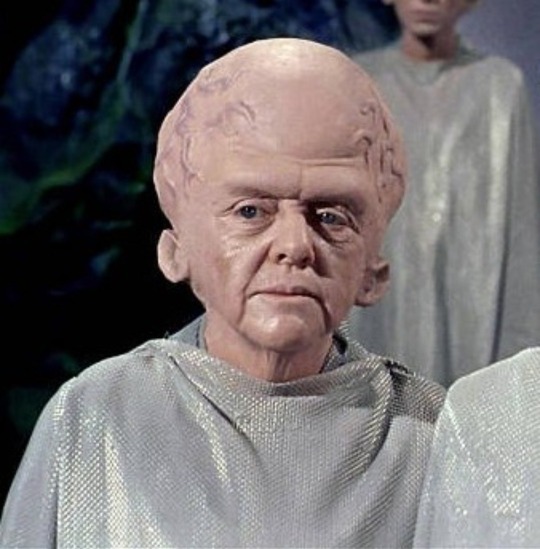
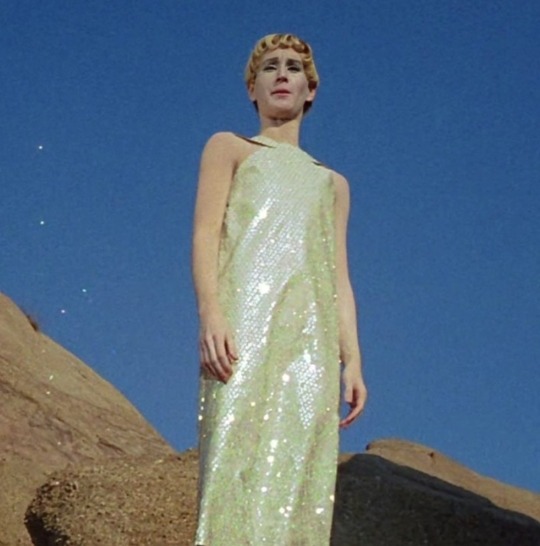

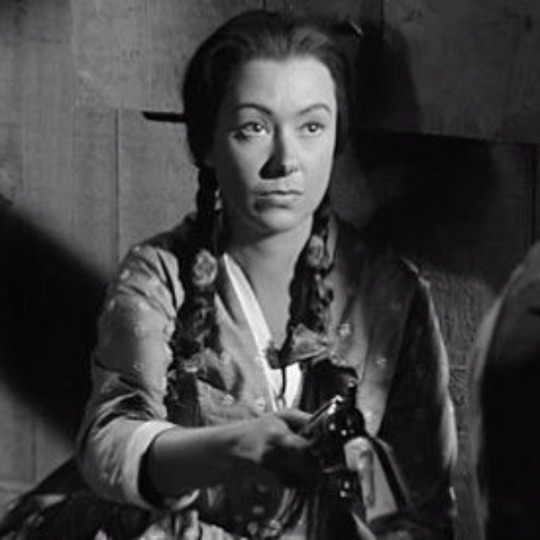
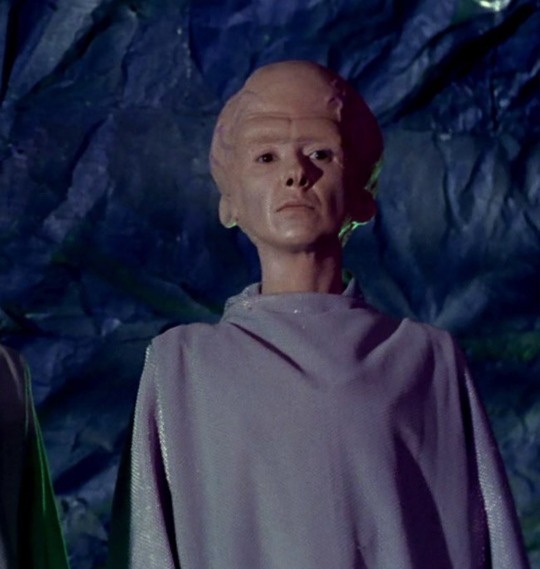
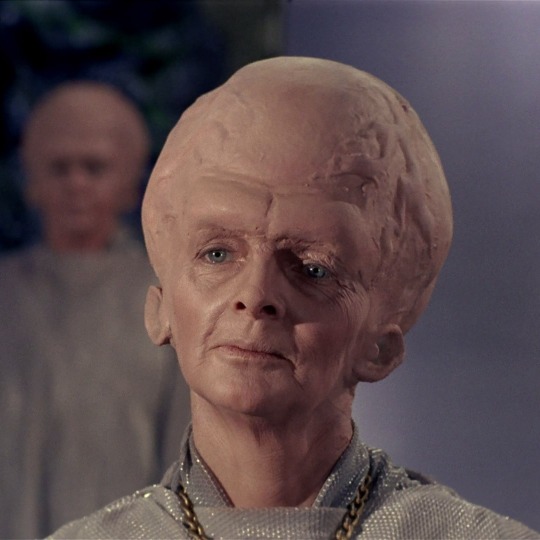



Georgia Schmidt, Carole Shelyne, Serena Sande, Meg Wyllie, & Sandra Lee Gimpel
A tribute to some lesser-known women of Star Trek :)
#i love women#star trek#iconic#star trek tos#star trek the original series#science fiction#costume design#aliens#space#classic#1960s#women#retro#screencaps#feminism#my edit#representation#the cage#the man trap#arena#sci fi#props#stage makeup#trek history
2K notes
·
View notes
Text

Ed Emshwiller's Christmas cover art for Galaxy Magazine, December 1960.
543 notes
·
View notes
Text









Hundreds of years in the future and thousands of light-years away, Mazu from Three-Hills practices her culture’s ancient art of sculpting spirit guides for the dead. But when technology from beyond the stars encroaches on her people’s lives—and deaths—what will happen to her art?
Read the rest of my new graphic novella "The Maker of Grave-Goods" this October exclusively through ShortBox Comics Fair--the innovative all-digital comics convention! @shortboxcomicsfair
#the maker of grave-goods#shortbox comics fair#sbcf2024#my comics#this is LE GUIN for FURRIES#little clay guys#science fiction#science fiction comics#sci fi#anthropology#anthropological sci-fi#worldbuilding#indie comics#speculative anthropology#speculative biology#aliens#artists on tumblr#furry comic#graphic novel#comics#art history#scifi art#science fantasy#space#furry#long post
961 notes
·
View notes
Text

ғʀᴀɴᴋ ғʀᴀᴢᴇᴛᴛᴀ Wolf Moon. 1965.
#frank frazetta#1960s#art history#surreal#dark#landscape#moon#sci fi#fantasy#wilderness#art#full moon#science fiction#wolf#alternative#20th century#horror#60s#rock n roll#chaos#🎯
412 notes
·
View notes
Text

A Whale-Bus. Illustration on paper card by Jean-Marc Côté, made in 1899 for the series En L'An 2000 (In the Year 2000), which imagined possible scientific advances of the twentieth century. The only known surviving set of these cards belonged to Isaac Asimov.
#art#art history#illustration#Jean-Marc Côté#science fiction#early science fiction#French art#19th century art
309 notes
·
View notes
Text
People don't realize how liminal it is to be a time traveler. How you don't ever really feel like you're in the time you are. Even when you're in your own time, everything is off, your coat was something you bought in interwar France, the book you're reading on the train is from a bookstore you had to visit in Victorian London, even your necklace was given to you by a Neolithic shaman, from a culture the rest of the world can never know. You find yourself acting strange even when in the present, much less in the past you have to work in.
You remember meeting a eunuch in 10th century China, and having him be one of the only people smart and observant enough to realize you were from a diffrent time. You could talk honestly with him, though still you couldn't reveal too much about your time. And it was still so strange hearing him talk casually about work and mention plotting assassinations. You're not allowed to but you still visit him sometimes.
You remember that the few times you were allowed to tell someone everything it was tragic. You knew a young woman who lived in Pompeii, who you had gotten close to, a few days before she would inevitably die. On your last day there you looked into her eyes, knowing soon they'd be stone and ash, that the beauty of her hair would be washed away by burning magma. And you hugged her, and told her that you wanted her to be safe, and told her she was wonderful and that you wanted her to be comfortable and happy. And you let her tongue know the joy of 21st century chocolate, and her eyes see the beauty of animation, knowing she deserved to have those joys, knowing it wouldn't matter soon. And you hugged her the last time, and told her she deserved happiness. And when you left without taking her it was like you were killing her yourself.
You want to take home everyone you're attached to. There's a college student you befriended in eighteen fifties Boston. And you can't help but see him try to solve problems you know humanity is centuries away from solving. And you just want to tell him. And it's not just that, the way he talked about the books and plays he likes, his sense of humor. There's so many people you want him to meet.
You feel the same way about a young woman you met on a viking age longship. She tells stories to her fellow warriors and traders, stories that will never fully get written down, stories that she tells so uniquely and so well. She has so many great ideas. You want so dearly to take her to somewhere she can share her stories, or where she can take classes with other writers, where she can be somewhere safe instead of being out at sea. She'll talk about wanting to be able to do something, or meet people, and you know you're so close to being able to take her, but you never can, unless she accidently finds out way too much then you can't.
You remember the longship that you met that young storyteller on. You were there before, two years ago for you, ten years later for the people on it. The young woman who told you stories wasn't there ten years later, you had been told why then but you only realize now, her uncle, who ran the ship, had been one of the first people to convert to Christianity in his nation. He killed her, either for not converting or for sleeping with women, you're not sure, but he killed her, and bragged about it when you met him ten years later.
You talk to the storyteller on the longship, ask her about the myths you're there to ask her about, the myths that she loves to tell. You look into her eyes knowing it's probably less then a year until her uncle takes her life. You ask her if you think that those who die of murder go to Valhalla. She tells you she hopes not, she doesn't see Valhalla as a gift but as a duty, she hopes for herself to go to Hel, where she wouldn't have to fight anymore. You slip and admit you're talking about her, telling her that you hope that's where she goes when she's killed. You hope to yourself you'll be forced to take her to the twenty first century, you're tempted even to make it worse, you want to have ruined her enough to be able to save her.
#196#my thougts#worldbuilding#writing#my worldbuilding#my writing#urban fantasy#ancient history#history#short fiction#short story#original fiction#flash fiction#viking#viking age#norse mythology#ancient rome#pompeii#science fantasy#science fiction#sci fi#scifi#queer#queer history
904 notes
·
View notes
Note
I've only read the first two pages of the actual story (strong start! Will def finish later) but i want to save this post with the link. It's fascinating, thank you!
“I took several classes in prey animal psychology, which actually were classes on the psychology of everything,” she explained in her Contemporary Authors essay. “About how we, being predators and having predators such as cats and dogs around us all the time, understand predators, but know very little about prey animals.”
also hey i saw this quote getting passed around tumblr recently. Guess people have been reading about Carol Emshwiller
I missed on the other ask: it probably also helped the show that the last year has made us all very familiar with "talks like a person but isn't one" systems. Even if you're not opposed to LLMs, it's pretty rare to think they're people.
I assume this is about Frieren and what I think gets lost under my calling the show fascist is that this is like... The worst version of the trope. What we've seen early at this stage is already enough to completely contradict the idea that demons are just aliens mimicking human speech to manipulate people; there's literally a scene of the demons being alone with each other and using speech to talk about their opinions and plan courses of action.
I'd be more forgiving if it felt like there was some actual creativity there, like if they didn't talk to *each other* but even in just two episodes it's really clear that demons converse for exactly the same reason people do.
Look at it this way: Suppose demons were the only race in existence; judging by what the anime shows us, they'd just, you know, act like humans. Talking to each other, organizing, building, fighting...
And the fact that they supposedly don't have parents but do have an organized social structure just raises a bunch of practical questions. Like, seriously, what *did* happen to that guy's dad? Or that kid's mom? How do demons reproduce? They clearly have a childhood where they are relatively defenseless and also an organized hierarchy, so why wouldn't they raise their own children? Even if they're incapable of love wouldn't that just make more sense from a military efficiency standpoint?
It really, really doesn't help that I've been thinking of the excellent short sci-fi story "Pelt" which is about a violent encounter between sentient predator species and a sentient prey species.
#science fiction#history of science fiction#????i don't think that's my tag for it#fix tags#stories#recommendations#note for later
15 notes
·
View notes
Text
The history of Solarpunk

Okay, I guess this has to be said, because the people will always claim the same wrong thing: No, Solarpunk did not "start out as an aesthetic". Jesus, where the hell does this claim even come from? Like, honestly, I am asking.
Solarpunk started out as a genre, that yes, did also include design elements, but also literary elements. A vaguely defined literary genre, but a genre never the less.
And I am not even talking about those early books that we today also claim under the Solarpunk umbrella. So, no, I am not talking about Ursula K. LeGuin, even though she definitely was a big influence on the genre.
The actual history of Solarpunk goes something like that: In the late 1990s and early 2000s the term "Ecopunk" was coined, which was used to refer to books that kinda fit into the Cyberpunk genre umbrella, but were more focused on ecological themes. This was less focused on the "high tech, high life" mantra that Solarpunk ended up with, but it was SciFi stories, that were focused on people interacting with the environment. Often set to a backdrop of environmental apocalypse. Now, other than Solarpunk just a bit later, this genre never got that well defined (especially with Solarpunk kinda taking over the role). As such there is only a handful of things that ever officially called themselves Ecopunk.
At the same time, though, the same sort of thought was picked up in the Brazilian science fiction scene, where the idea was further developed. Both artistically, where it got a lot of influence from the Amazofuturism movement, but also as an ideology. In this there were the ideas from Ecopunk as the "scifi in the ecological collaps" in there, but also the idea of "scifi with technology that allows us to live within the changing world/allows us to live more in harmony with nature".
Now, we do not really know who came up with the idea of naming this "Solarpunk". From all I can find the earliest mention of the term "Solarpunk" that is still online today is in this article from the Blog Republic of Bees. But given the way the blogger talks about it, it is clear there was some vague definition of the genre before it.
These days it is kinda argued about whether that title originally arose in Brazil or in the Anglosphere. But it seems very likely that the term was coined between 2006 and 2008, coming either out of the Brazilian movement around Ecopunk or out of the English Steampunk movement (specifically the literary branch of the Steampunk genre).
In the following years it was thrown around for a bit (there is an archived Wired article from 2009, that mentions the term once, as well as one other article), but for the moment there was not a lot happening in this regard.
Until 2012, when the Brazilian Solarpunk movement really started to bloom and at the same time in Italy Commando Jugendstil made their appearance. In 2012 in Brazil the anthology "Solarpunk: Histórias ecológicas e fantásticas em um mundo sustentável" was released (that did get an English translation not too long ago) establishing some groundwork for the genre. And Commando Jugendstil, who describe themselves as both a "Communication Project" and an "Art Movement", started to work on Solarpunk in Italy. Now, Commando Jugendstil is a bit more complicated than just one or the other. As they very much were a big influence on some of the aesthetic concepts, but also were releasing short stories and did some actual punky political action within Italy.
And all of that was happening in 2012, where the term really started to take off.
And only after this, in 2014, Solarpunk became this aesthetic we know today, when a (now defuct) tumblr blog started posting photos, artworks and other aesthetical things under the caption of Solarpunk. Especially as it was the first time the term was widely used within the Anglosphere.
Undoubtedly: This was probably how most people first learned of Solarpunk... But it was not how Solarpunk started. So, please stop spreading that myth.
The reason this bothers me so much is, that it so widely ignores how this movement definitely has its roots within Latin America and specifically Brazil. Instead this myth basically tries to claim Solarpunk as a thing that fully and completely originated within the anglosphere. Which is just is not.
And yes, there was artistic aspects to that early Solarpunk movement, too. But also a literary and political aspectt. That is not something that was put onto a term that was originally an aesthetic - but rather it was something that was there from the very beginning.
Again: There has been an artistic and aesthetic aspect in Solarpunk from the very beginning, yes. But there has been a literary and political aspect in it the entire time, too. And trying to divorce Solarpunk from those things is just wrong and also... kinda misses the point.
So, please. Just stop claiming that entire "it has been an aesthetic first" thing. Solarpunk is a genre of fiction, it is a political movement, just as much as it is an artistic movement. Always has been. And there has always been punk in it. So, please, stop acting as if Solarpunk is just "pretty artistic vibes". It is not.
Thanks for coming to my TED Talk, I guess.

#solarpunk#solarpunk aesthetic#solarpunk fiction#political movement#history#history of solarpunk#amazofuturismus#put the punk back in solarpunk#scifi#science fiction#clifi#climate fiction#ecopunk
3K notes
·
View notes
Text

389 notes
·
View notes
Text

“Hidden Fires”
Science Fantasy Novel
85K Words
When his sister finds herself stranded in a hostile city, Drake McCarty must leave the retaliative safety of his wilderness home to rescue her. The mysterious alien Bard accompanies him as whispers of ancient enemies drift down from the stars. Drake can feel his bond with this ancient warrior growing every hour, but will it be strong enough to withstand the revelations that await them in the crowded city, or will it shatter under Drakes own weakness.
Indiegogo: https://igg.me/at/HiddenFiresBook/x/20737048
#FoundFamily #ScienceFiction #SciFi #Aliens #NationalParks #Novel
#HiddenFires#FlyingSparks#DyingEmbers#BettyAdams#Alternate History#Found Family#SciFi#Science Fiction#Aliens#Pack#Wolves#Badass#Misunderstandings#slow build#soulmates#Cuddling & Snuggling#shapeshifting#Harm to Children#Shapeshifters#abduction#domestic#protectiveness#awkwardness
219 notes
·
View notes
Text
Space Patrol - British series (Videos, Roberta Leigh, produced 1962, aired 1963)
You can watch them here. From the Wikipedia article:
"The humanoids in his crew consist of the elfin Slim from Venus, and the stocky, ravenously sausage-mad Husky from the Red Planet, Mars. The imperfect Slavic accent variants and six-pointed star chest emblems of these two may have been a sly nod to the Jewish-Russian heritage of the English series creator/writer."
"The show reflected sex roles characteristic of the culture and era which produced it, but blonde and brainy Marla would often explicitly point out that "There are no dumb blondes on Venus." Indeed, the series was created and written by the prolific polymath artist Roberta Leigh, the first woman producer in Britain to have her own film company."
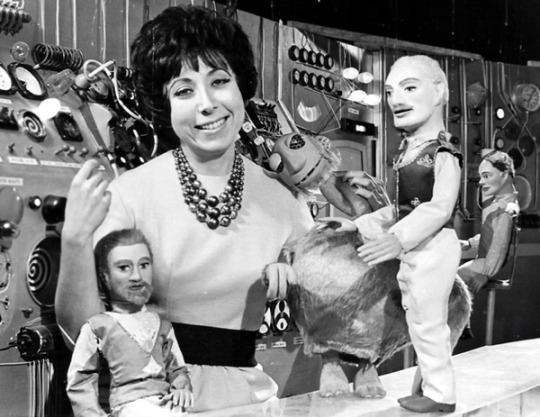
#internet archive#video#videos#old tv#old tv show#old tv series#tv history#television history#puppet#puppets#puppetry#female creators#scifi#sci fi#science fiction#60s sci fi#1962#1963#1960s#60s
101 notes
·
View notes
Text




Contact Fanzine | Pat Stall, 1977
#pat stall never disappoints#the last one goes SO hard#spirk#spock#captain kirk#james t kirk#jim kirk#fan art#fanzines#vintage#star trek#star trek the original series#star trek tos#sci fi#science fiction#k/s#the premise#art#lgbt#queer history#fandom history
603 notes
·
View notes
Text
STAR TREK premiered on NBC on this day in 1966.
4K notes
·
View notes